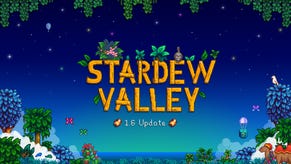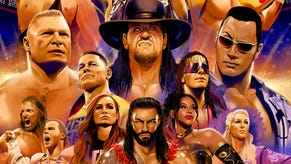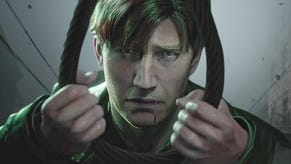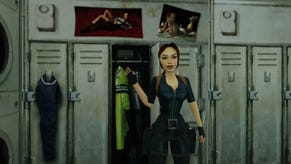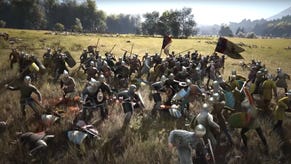Behind the beak of Club Penguin: would you let your child play?
A trip down Merrifield, Lane.
Club Penguin is no hybrid chocolate bar.
It's a browser MMO about cartoon penguins and their snowy online world of mini-games and igloo decorating. It's a giant; a business boasting 150 million registered accounts and 10 to 15 million active monthly users. And a portion of those pay £5 every month.
Lane Merrifield created it for his children.
"I grew up a gamer. I've always had a passion for it. It was always a hobby and something I participated in in my personal life - nothing really to do with my career," Merrifield told Eurogamer, in a room decorated with wall-sized images from Disney's film Cars.
"I was working for a web company, and the real heart of where Club Penguin came from was my son - my daughter wasn't born yet. We looked at what was out there and we saw this massive audience of kids going towards adult experiences: at the time, World of Warcraft was taking off in big ways; at the time, Facebook was barely out of Harvard; and at the time, MySpace was huge.
"We sat down and said, 'With our kids, we don't want them going there - why are they doing it?' We wanted to take the community stuff, the social stuff for adults, and put it into a kid context, because kids want to be social, they just socialise in a very different way."
This disgustingly decent motive wasn't even a guise for greed.
"I don't think we would have made it if it was our wallet's desire," Merrifield mulled. "We didn't take any venture capitalist funding, we funded it all ourselves; we took second mortgages out on our houses and things like that.
"We wanted to make sure we approached it as parents, and we didn't want outside influences - investors or business minds - to quickly pick it apart."
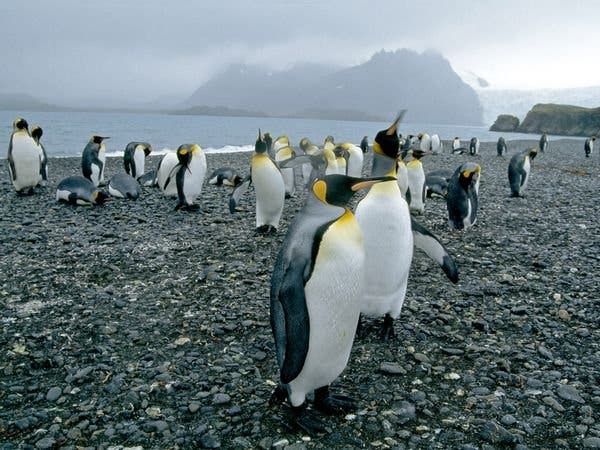
Merrifield remembered being labelled "crazy" and "ridiculous" for wanting to fund it via optional paid subscription. "In hindsight we look really smart, but really all we were was parents trying to figure out how to do the right thing."
"Honestly," he said, "our goal was to break even; have it not have us lose our houses. And if our kids like it and maybe some other kids like it, we can make a small business out of it."
Merrifield kept his existing web business running for six months after Club Penguin began. The game was profitable, but he wasn't sure it was more than "a quick fad". Then Club Penguin took off in a way the eponymous birds can't, and in 2007, Mickey Mouse maker Disney swooped in, clutching (with white gloves) an acquisition pot of $350 million. A further $350 million would be dished out if targets were hit.
"I always tell people that Club Penguin has its doors locked, its windows rolled up, it has the club on the wheel, is lo-jacked and is in a sea of vehicles that have the doors unlocked and the keys sitting in the ignition."
Lane Merrifield, creator, Club Penguin
So these days Lane Merrifield is a millionaire. "I am, yes," he confirmed. That's nice. He laughed, and looked a bit like Ricky Gervais. "I will say that it's certainly grown larger than we ever thought it would. I will certainly not put it on the scale of World of Warcraft, in terms of revenue, but I will put it on the scale of a lot of mainstream successful titles out there."
We met Lane Merrifield in Brighton while he was visiting Club Penguin's European moderator HQ. Four floors of brightly coloured office are dedicated to multi-lingual teams of bubbly 20-somethings (roughly) who patrol the digital snow looking for miscreants. They also play with and encourage the children of Club Penguin to try new things. These moderators help make up a global team of digital enforcers numbering 250.
"I always tell people that Club Penguin has its doors locked, its windows rolled up, it has the club on the wheel, is lo-jacked and is in a sea of vehicles that have the doors unlocked and the keys sitting in the ignition," Merrifield preached.
"At the end of the day, there's nothing that anyone who could be up to no good can do in our world. Frankly, I believe and I would hope that they would move on pretty quickly, because there's just nothing that they can accomplish."
Adults are as free to create a Club Penguin account as children. Lane Merrifield plays Club Penguin with his children when he's away on business. There are no restrictions. So yes, theoretically a paedophile could log on, but once there, what would they do? They see a world of penguins, and they can't begin to glean any personal details from the other penguins because of a phase chat system that merges predictive typing with a pre-determined set of phrases. You can only say the allowed words on it.
"Unless your school happens to be Penguin School or you happen to live on Penguin Street or some term that's already in there - you can't even say the word street or the word school," Merrifield explained. "Our head of safety worked for the RCMP (Royal Canadian Mounted Police) for 20 years before he started working with us. So he's seen it all, and obviously brings that expertise to the table.
"At the end of the day, all we can really do is let our reputation speak for itself. We've been doing this for six years, we've had over 150 million kids come through, and not a single incident. And of course we're working hard every day to make sure that that stays true."
"I have a five and a nine year old, they still play regularly, so it's not just about protecting kids out there and certainly not for show - it's about protecting my own kids."
Lane Merrifield
If someone does step out of line, maybe for spouting naughty words, they can be issued a 24-hour ban and a warning. "Typically if someone's going to get permanently banned - an account has to work really hard to get permanently banned. We always want to give kids the benefit of the doubt. We know they're going to experiment, we know they're going to see what they can get away with, push the envelope. But if they're just clearly up to no good..." Merrifield trailed off, with a - was that a maniacal look in his eye?
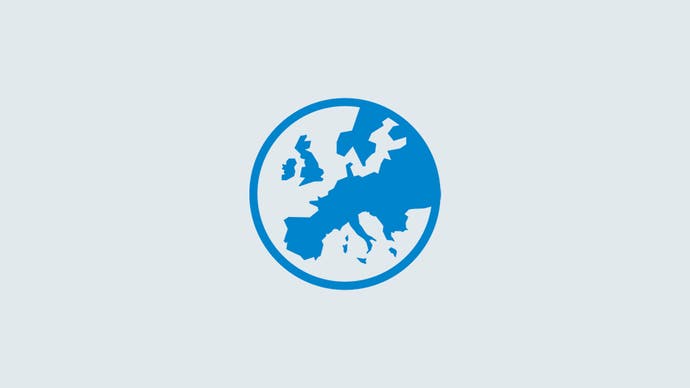
"And frankly it's funny, because as much as we talk about the parents' appreciation of this safety - it may not be cool to talk about it on the school yard, but kids appreciate it as well. We hear from kids all the time: 'I play these other games or I play these other experiences or I do this other thing and it doesn't feel as safe and it's not as fun as a result.'
Club Penguin's safety is "by far the most expensive part of our business", Merrifield informed us.
"To some parents we're probably going overboard; to others we're right on track. I'd rather err on the side of being too safe than not being safe enough. I wish other sites would err on the side of being too safe, because there's... They're kids, and at the end of the day we owe them the best we can do in that regard. I have a five and a nine year old, they still play regularly, so it's not just about protecting kids out there and certainly not for show - it's about protecting my own kids."
"Safety has to be at the foundation of everything we do," Merrifield insisted, "because if a kid doesn't feel safe they're not going to have fun; they're not going to be creative, they're not going to be imaginative. And if we want this world to be about those things, the moment we're telling a kid, 'Go have fun, enjoy yourself, go off and be creative and use your imagination!' And all of a sudden if something feels a bit off to them, they see something that isn't right, it wrecks all that.
"We've been doing this for six years, we've had over 150 million kids come through, and not a single incident. And of course we're working hard every day to make sure that that stays true."
Lane Merrifield
"To us, it really has always been about the foundation, and we build everything else on top of that."
A child typically parts with Club Penguin when they reach the minefield of puberty. Merrifield informed us that those children may then become Eurogamer's readers and core gamers, if they're boys. The girls - "and I'm stereotyping obviously" - go into social networks like Facebook. "But it's an older age demographic than most people realise," Merrifield revealed, "It goes up to about 11, 12, 13 years old.
"In fact, we have some teenagers who email us saying, 'I don't really play any more because I'm too old for it, but sometimes I log-in to check out my igloo or I want to check out a party or something.'
"It's fun," Merrifield smiled, "we almost get this like nostalgic element."
Club Penguin Wii and DS games have been released, but there are no plans at the moment for any other console endeavours. Merrifield's preferred focus is mobile, because "connectivity is really important", both for constantly altering the world and because "everything we do is inter-connected". He's going to "wait and see" what the next generation of consoles bring.
So there you have it: a glimpse behind the beak of Club Penguin. So, will you let your child play it?
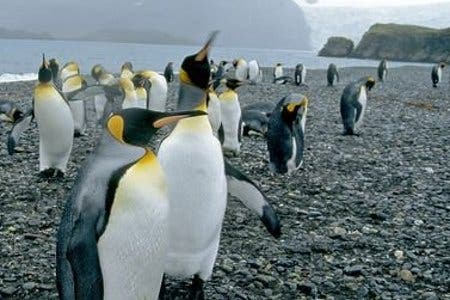

.png?width=291&height=164&fit=crop&quality=80&format=jpg&auto=webp)
